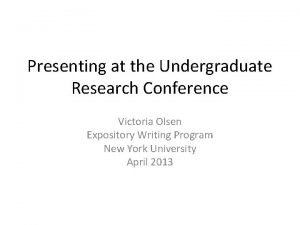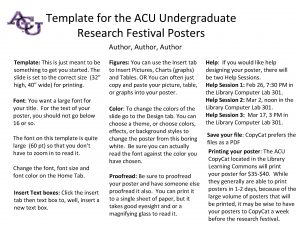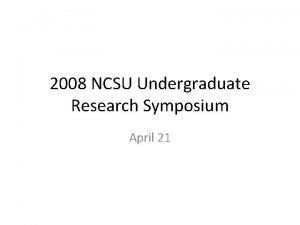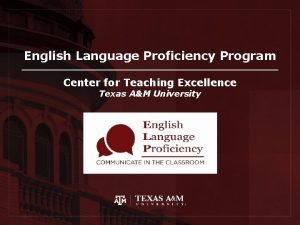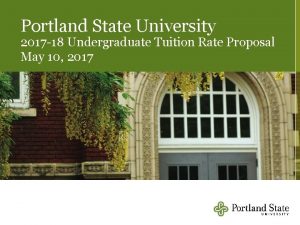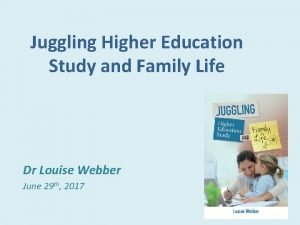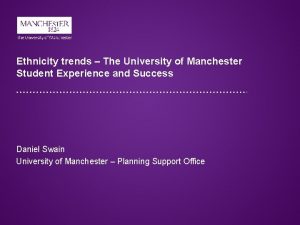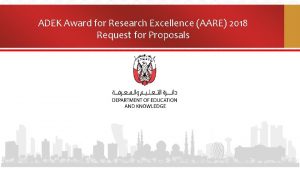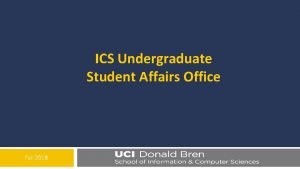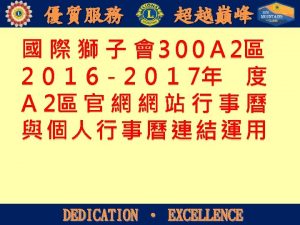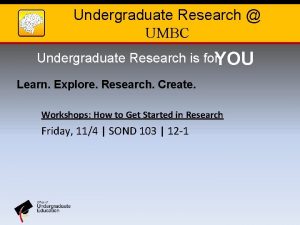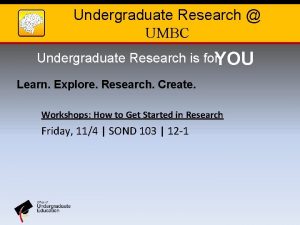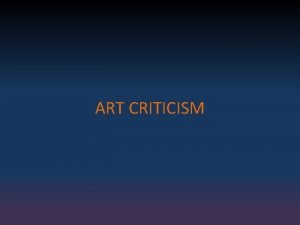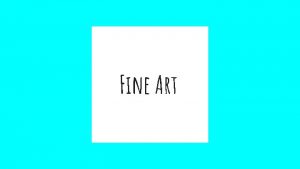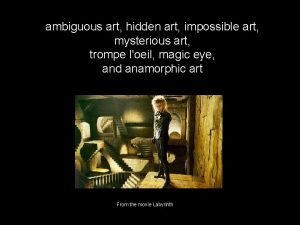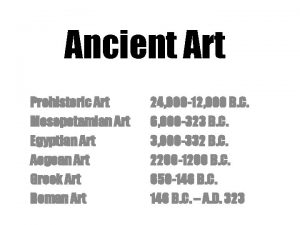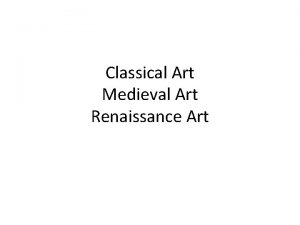UNDERGRADUATE RESEARCH AND TEACHING EXCELLENCE IN ART AND











- Slides: 11

UNDERGRADUATE RESEARCH AND TEACHING EXCELLENCE IN ART AND ART HISTORY ALEXA SAND SARA OREL COUNCIL ON UNDERGRADUATE RESEARCH DIVISION OF ARTS AND HUMANITIES CURAH @ CAA

HIGH-IMPACT EDUCATIONAL PRACTICES: WHAT THEY ARE, WHO HAS ACCESS TO THEM, AND WHY THEY MATTER, BY GEORGE D. KUH (AAC&U, 2008) • First year seminars • Common intellectual experiences • Learning communities • Writing intensive curriculum • Collaborative learning and projects • Undergraduate research • Diversity/global learning • Service and community-based learning • Internships and apprenticeships • Capstone experiences

UR IN THE ARTS: WHAT IT IS CURAH DEFINITION OF UR Undergraduate research in the arts and humanities is student-driven, facultymentored inquiry, scholarly investigation, and/or creative activity. The undergraduate researcher's work may contribute to outcomes including, but not limited to, individual or collaborative analytical writing; oral presentation; small analytical products; works of visual art; compilations of scholarship; exhibits; musical compositions; plays; performance; public scholarship; and/or peer-reviewed publication. Whatever the research product, its value is generally weighed by standards specific to experts in the field, whether jurors, editors, or reviewers

WHERE IT HAPPENS • Classroom • Curriculum • Institutional initiatives • Co-curricular mentoring and collaboration

HOW DOES IT BENEFIT FACULTY AS WELL AS STUDENTS? • Increased student engagement = more stimulating classroom experience • Improved course evaluations • As an evidence-based best practice, supports promotion and tenure in the teaching area • Can contribute to mentor's research or creative work • Good PR

RESEARCH SKILLS DEVELOPMENT Where are your students on the spectrum from teacher/mentor initiated research to independent, professional work in each of the stages of the research process? 1. Embark 2. Organize 3. Find 4. Analyze 5. Communicate 6. Evaluate

See www. rsd. edu. au for full version of RSD and http: //www. adelaide. edu. au/rsd/frameworks/ for OPS. john. willison@adelaide. edu. au

ASSESSMENT How do we know if what we are trying to do is working?

WHAT DO WE WANT TO KNOW? Individual improvement – is student improving from freshman to senior? Program evaluation – successes or not? Benchmarking – evaluation compared to other programs

POTENTIAL MEASURES Qualitative measures? weak/competent/strong aspects of research Quantitative measures? # students applying/accepted to undergraduate research and/or art history specialist conferences

ARE STUDENTS GETTING BETTER? How do we know? How can we show it?
 Victoria olsen
Victoria olsen Acu undergraduate research festival
Acu undergraduate research festival Michael flavin
Michael flavin Ncsu undergraduate research symposium
Ncsu undergraduate research symposium Teaching excellence and achievement
Teaching excellence and achievement Language
Language Portland state university tuition
Portland state university tuition Difference between postgraduate and undergraduate
Difference between postgraduate and undergraduate Difference between postgraduate and undergraduate
Difference between postgraduate and undergraduate Abu dhabi award for research excellence (aare)
Abu dhabi award for research excellence (aare) Undergraduate meaninh
Undergraduate meaninh Uci ics academic advising
Uci ics academic advising
